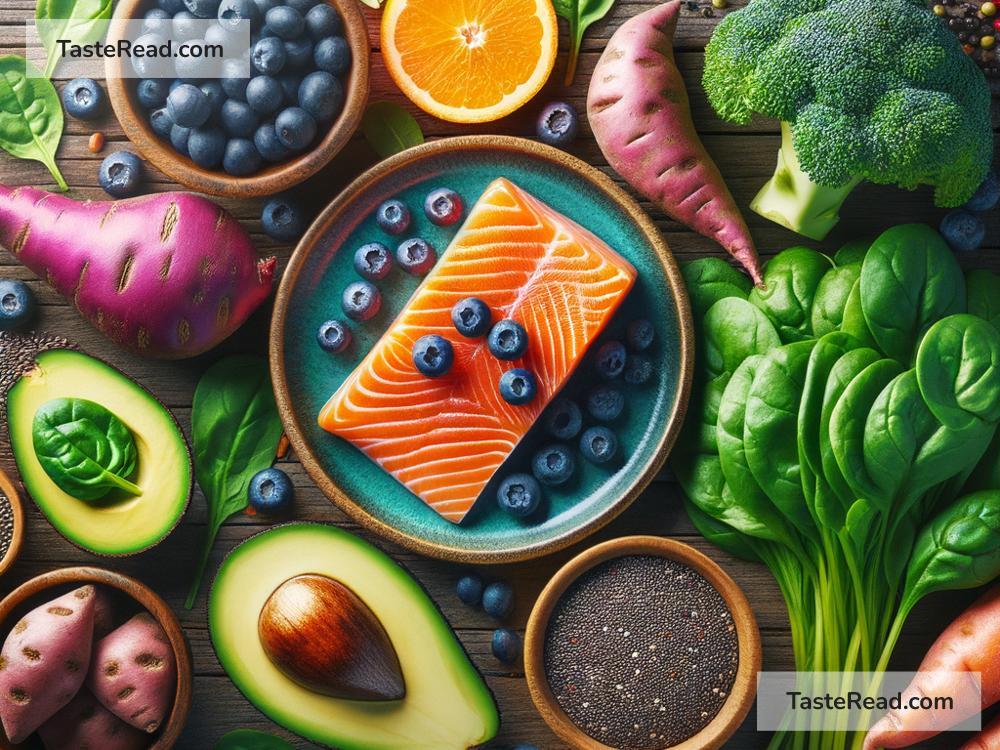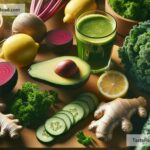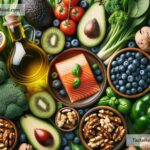Foods for Managing Eczema: Eating Your Way to Healthier Skin
Eczema is a common skin condition that leads to dry, itchy, and inflamed skin. For those living with eczema, finding ways to ease the symptoms can feel like a daily challenge. While creams, medications, and lifestyle changes are often recommended, your diet can also play a major role in managing eczema. What you eat can either help calm your skin or make flare-ups worse. So, let’s explore some foods and tips to help manage eczema naturally and improve your overall skin health.
The Link Between Diet and Eczema
Before diving into specific foods, it’s important to understand why diet matters for eczema. Eczema is often connected to inflammation in the body. Certain foods can increase inflammation, making your skin flare up, while other foods fight inflammation and improve your overall immunity.
Additionally, eczema sufferers may also have allergies or sensitivities to certain foods. If a food triggers your eczema, removing it from your diet can help reduce flare-ups significantly. While food triggers vary for each person, focusing on foods that promote skin health is always a good place to start.
Foods That Help Eczema Management
-
Fatty Fish:
Fatty fish like salmon, mackerel, and sardines are rich in omega-3 fatty acids. Omega-3s are healthy fats that help reduce inflammation in the body. By eating fatty fish a couple of times a week, you’re giving your skin a boost from the inside out. If you’re vegetarian, flaxseeds, chia seeds, and walnuts are good plant-based options. -
Probiotic-Rich Foods:
Gut health and eczema are closely connected. Studies have shown that probiotics, or “good bacteria,” can improve eczema symptoms for some people. Foods like yogurt, kefir, sauerkraut, kimchi, and miso are full of probiotics that support your gut and immune system. A healthier gut often means healthier skin. -
Green Leafy Vegetables:
Vegetables like spinach, kale, and Swiss chard are loaded with vitamins, minerals, and antioxidants that fight inflammation. They also contain vitamin C, which helps the skin repair itself and stay hydrated. -
Quercetin-Rich Foods:
Quercetin is a natural compound found in certain fruits and vegetables, such as apples, blueberries, and cherries. It has strong antioxidant and anti-inflammatory properties that can help reduce eczema flare-ups. -
Turmeric:
Turmeric is a spice famous for its anti-inflammatory benefits, thanks to an active compound called curcumin. Adding turmeric to your meals or making turmeric tea can calm inflammation in the body, which may ease eczema symptoms. -
Foods High in Vitamin E:
Vitamin E supports healthy skin by acting as an antioxidant and keeping your skin hydrated. Foods like almonds, sunflower seeds, avocados, and sweet potatoes are great sources of this important nutrient. -
Oats:
Oats aren’t just good for soothing irritated skin when applied as a mask or in a bath—they’re also great to eat! Oats contain zinc, vitamin B, and antioxidants, which can strengthen your skin barrier and reduce symptoms of eczema. -
Olive Oil:
Swap processed oils for olive oil, which is full of healthy fats and antioxidants known for reducing inflammation. Drizzle it over salads or use it in cooking to make your meals eczema-friendly. -
Fresh Fruits and Vegetables:
Vibrant fruits and veggies are loaded with vitamins and antioxidants that promote healthy skin. Try to eat a variety of colors each day—for example, oranges, carrots, tomatoes, broccoli, and berries—to get a range of helpful nutrients.
Foods to Avoid
While many foods can help manage eczema, some might worsen symptoms. Everyone’s body is different, but you may want to pay attention to these common offenders:
-
Dairy:
Dairy products like milk, cheese, and ice cream trigger eczema symptoms for some people. If you suspect dairy is a problem, try cutting it out and see if your skin improves. -
Processed Foods:
Chips, packaged snacks, instant meals, and sugary drinks often contain chemicals, preservatives, and unhealthy fats that can increase inflammation. -
Gluten:
Gluten, a protein found in wheat, barley, and rye, may cause eczema flare-ups in some individuals, especially if they are sensitive to it or have celiac disease. -
Sugar:
A diet high in sugar can worsen inflammation, making eczema symptoms worse. Reduce sugary snacks, sodas, and desserts, and choose natural alternatives like fruit when you’re craving something sweet. -
Food Allergens:
Some people have specific food allergies or sensitivities that contribute to their eczema. Common allergens include eggs, nuts, soy, and shellfish. If you suspect one of these might be a trigger, consult with a doctor or allergist to identify your personal food sensitivities.
Other Tips for Eczema-Friendly Eating
-
Stay Hydrated: Drinking enough water is essential for keeping your skin hydrated and healthy. Aim for at least 8 glasses of water a day. Herbal teas and coconut water are also good hydration options.
-
Focus on Whole Foods: Stick to unprocessed, natural foods like fruits, vegetables, whole grains, and lean proteins. These are less likely to cause inflammation.
-
Be Mindful of Food Triggers: Keep a food diary to track what you eat and how your skin reacts. Over time, you may discover specific foods that help or worsen your eczema.
Conclusion
While there’s no one-size-fits-all diet for eczema, focusing on anti-inflammatory and nutrient-rich foods can make a big difference. By eating fatty fish, probiotics, green veggies, and other skin-friendly foods, you’re giving your body the tools it needs to repair and protect your skin. At the same time, avoiding processed foods, dairy, and potential allergens can help limit flare-ups.
Managing eczema takes patience, but adopting healthy eating habits is a simple yet effective way to soothe your skin and improve your overall well-being. Always listen to your body and consult with a doctor or nutritionist if you need personalized advice for eczema management. After all, good food isn’t just fuel—it’s medicine for your skin!


